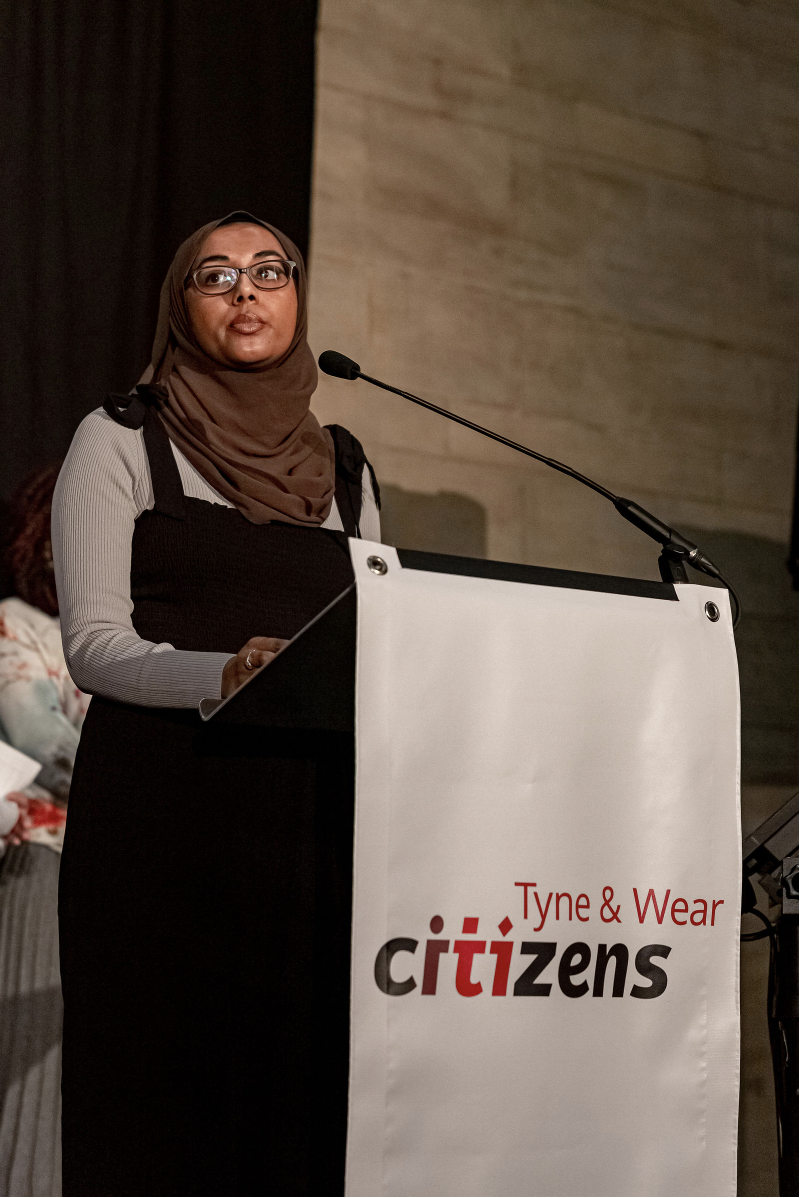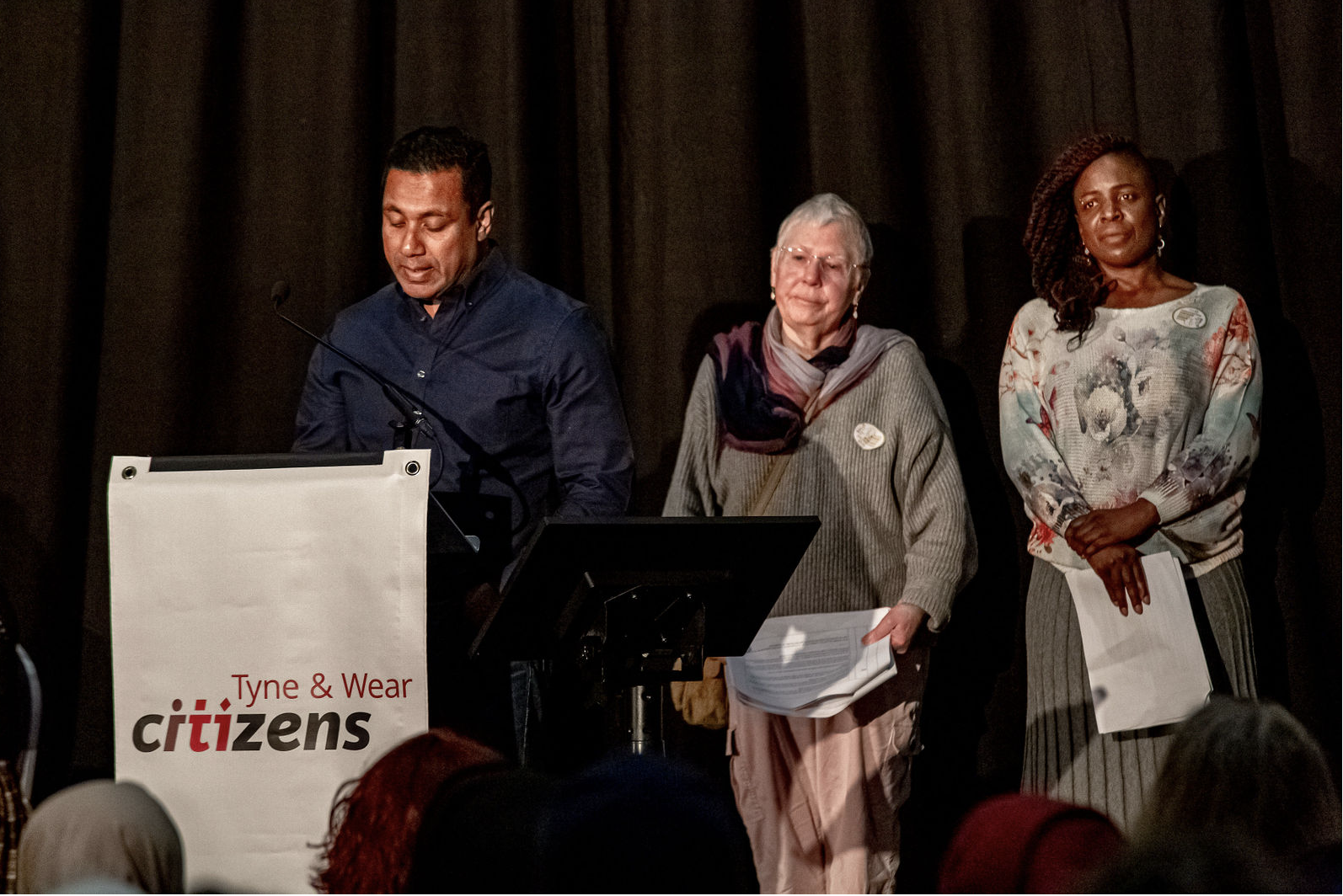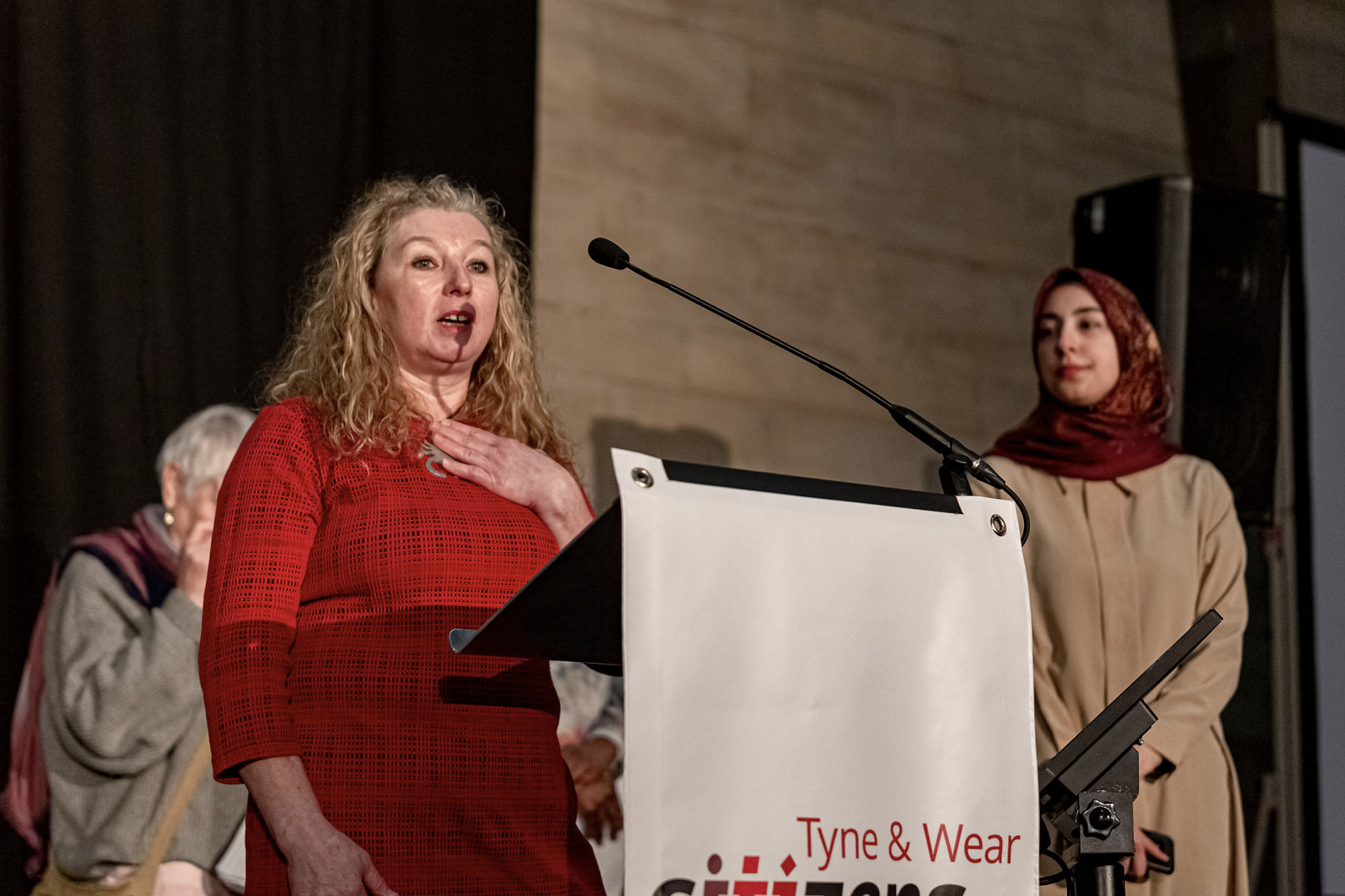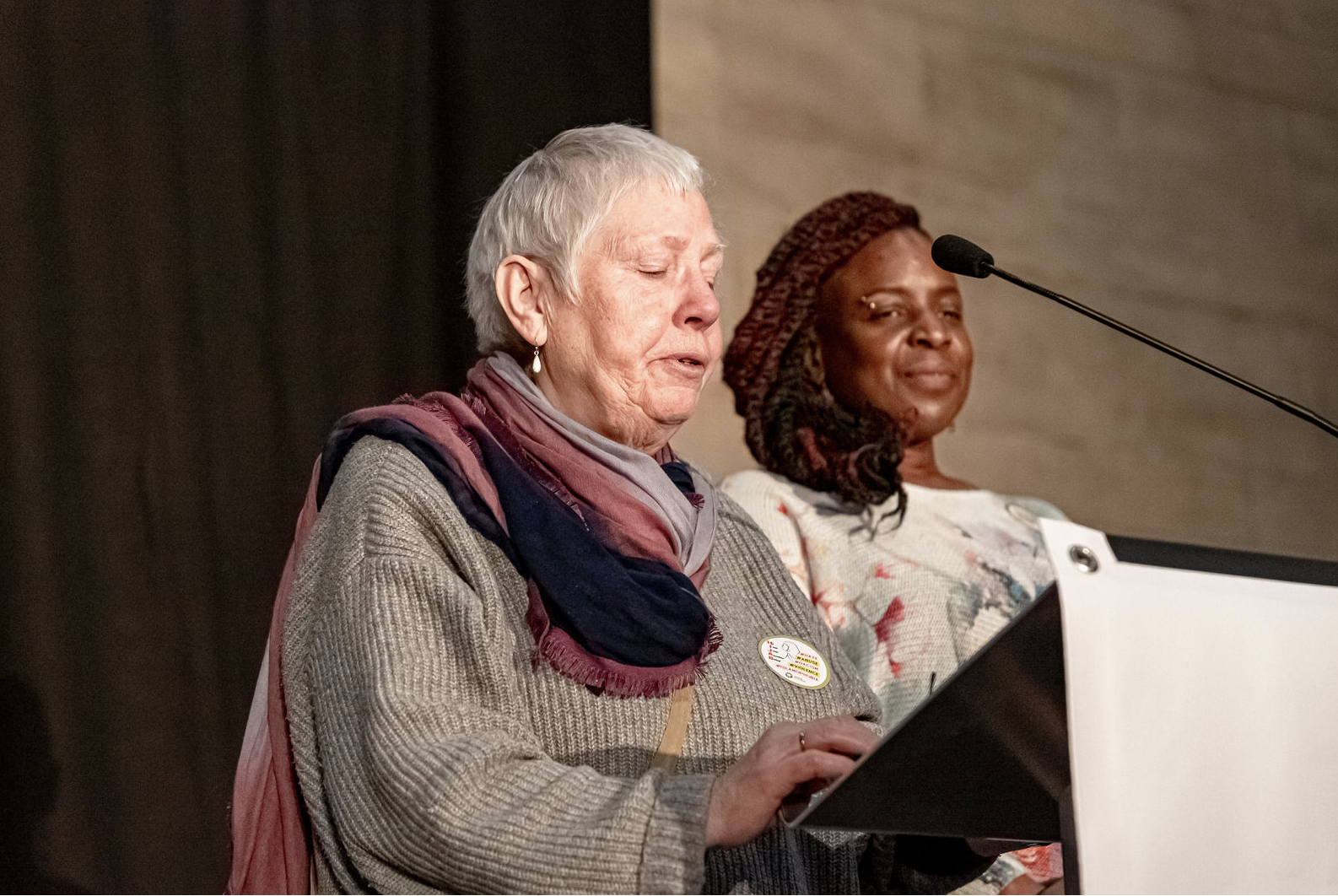Racial Justice in Education Action Team
Posted on 23 Nov 2022 Categories: Blog, Community Initiatives, Local initiatives
by Barry Knight
In the first two applications for the Janette Kirton-Darling Memorial Prize, we saw the power of local people to affect issues that affect them. In one case, the result was an improved environment and in the other, improved mental health.
Here we feature the work of the Racial justice in Education Action Team of Tyne and Wear Citizens. This application shows the power of local people to combat the evils of racism.

The context
At a time when the Sewell Report said that institutional racism did not exist in the UK, members of community groups across Tyne and Wear were hearing a different story.
Tyne and Wear Citizens, which is made up of 32 civil society institutions working for the public good – schools, universities, charities, faith organizations and more – ran a listening campaign across the region during 2020 and 2021. The research uses a simple question ‘what is putting pressure on you, your family and your community?’
Findings suggest that racism is a deep-seated problem. Story after story emerged of people’s experiences of institutional racism in local authorities, police and housing associations. However, the greatest number of stories were about the terrible experiences of pupils, parents, communities, teachers and governors in schools in the region. A particularly glaring example concerned the headteacher of a regional primary school sending a racist letter to parents of Bengali children in the school community accusing them of breaking lockdown regulations in 2020 and putting the community at risk.
Action team
As a result of the listening campaign, the Tyne and Wear Citizens alliance formed the Racial Justice in Education action team in January 2022. The action team members came from organizations across Tyne and Wear. They included Newcastle Central Mosque, Sunderland International Bangladesh Centre, Northumbria Area Quakers, Tyneside Welcomes, International Community Organisation of Sunderland, the Roman Catholic Diocese of Hexham and Newcastle Diocese and Newcastle University.
Approach
The action team uses the National Education Union’s (NEU) Anti-racism charter to work with schools to use a listening-based approach to embed anti-racism within the life of their school community. This is called a ‘whole school approach’ in which problems are identified and dealt with as part of institutional policy and practice.
Progress
Even though the action team has been in existence for only 10 months, considerable progress has been made.
A video shows how pupils and staff have approached the development of racial justice in St Thomas More Catholic High School. Everyone has the opportunity to contribute and particular emphasis is placed acting on what pupils have to say. While the video was made early on in the process, the pioneering work of St Thomas More Catholic High School continues. The school regularly listens to the experiences of pupils, parents, teachers and governors and uses the outcomes of that listening to identify issues that they need to address.
In Sunderland, a long and hard grassroots anti-racist campaign was led by community members and parents of Richard Avenue Primary School, that led to the instillation of a new headteacher, Claire McKinney. The action team became involved with the community and school and all are working together to support the school in becoming an anti-racist and inclusive school community. They plan to use a listening-based approach to embed the NEU anti-racism charter in the school policies, procedures and, most importantly, practices.
Even at this early stage, it is clear that the methodology adopted by the Racial Justice in Education Action Team has much potential to address institutional racism. The method ticks a number of important boxes. First, the approach is systematic, as opposed to piecemeal. Second, it uses a charter as a tried and tested method, rather than being ad hoc. And third, the broad base of institutions included in the action team mean that its work can be spread across the region, rather than being restricted to a single institution or geography.

Future plans
Developing the work further is a priority for Tyne and Wear Citizens. An important step is to evaluate the value of using a listening approach and an anti-racism charter, and then to promote this across the region.
Meantime, work on the ground will continue. This will involve working with the schools that have begun the journey of anti-racism to embed a culture of regular listening using the NEU anti-racism charter as a framework. It will also involve working with schools, multi-academy trusts and local authorities to increase the number of schools participating in this campaign.
Eventually, a coalition of members taking a ‘whole communities’ approach to addressing racism could mean that everyone has the opportunity to benefit from schools and other educational institutions free from the hurtful and damaging consequences of the racism that haunts our society.

Written by Barry Knight, based on material produced by the Racial Justice in Education Action Team
Want to keep up-to-date with more articles like this? Sign up to our newsletter.
Posted on 23 Nov 2022 Categories: Blog, Community Initiatives, Local initiatives

